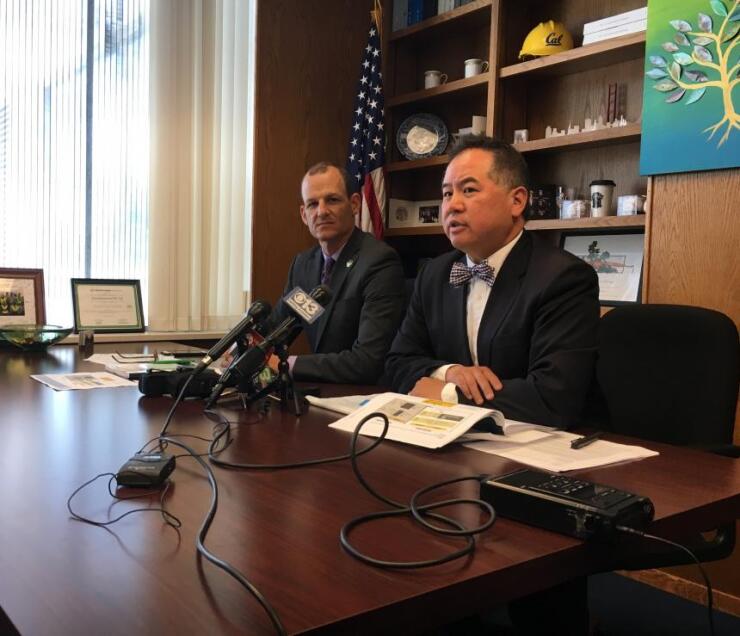LOS ANGELES — California and many other states will see a 12% increase in their corporate tax base as a result of the federal tax bill, according to a
The change means that California’s revenues for corporate income tax could increase by $1.3 billion based on what the governor has estimated would be the corporate tax revenues for the fiscal year, said Loren Kaye, president of the California Foundation for Commerce and Education, a think tank affiliated with the California Chamber of Commerce.
Under the tax bill passed last year, the federal government reduced its corporate tax rate from 35% to 21%, but also eliminated many tax deductions and changed foreign tax rules. The change has resulted in growth in state taxable income because state rates didn’t change, according to an Ernst & Young study conducted for the Council on State Taxation, a national business organization.

"It is anticipated that conformity with federal base-broadening provisions will result in a significant revenue windfall for most states, particularly with regard to corporate taxation," the report said.
The E&Y study estimated that the corporate tax base for each state will grow by 12% on average over the next decade.
“The most important thing is we need to see what shakes out with federal tax reform before taking any action,” Kaye said. “The poster child for that is Assemblymen Phil Ting and Kevin McCarty’s proposal, which would raise corporate taxes in California, because of federal tax reform. It looks like we are seeing a windfall of corporate tax revenues, so let’s hold the phone.”
McCarty, D-Sacramento, and Ting, D-Sacramento, introduced Assembly Constitutional Amendment 22 in January, which would ask voters to place a 10% surcharge on net earnings of more than $1 million for corporations in California.
The intent was to impose a tax on half of the federal corporate tax cut to benefit the middle class taxpayers that McCarty and Ting contend are being harmed by the tax bill.
“At a time when reckless federal tax policy favors billionaires over middle class workers, ACA 22 will help ensure that California can continue to grow and support middle class families throughout the state,” McCarty said in a statement when the measure was introduced in January.
The measure is currently in the Rules Committee waiting on assignment to a different committee. It would have to approved by the Legislature and then be placed on the ballot before voters. A McCarty spokesman said the Assemblyman’s support for the bill has not changed since its introduction, but she didn’t know if he had reviewed the E&Y report. McCarty didn’t return calls for further comment.
COST wasn’t surprised that the tax changes will result in increased revenue for many states, said Karl Friedan, the organization’s vice president and general counsel. States calculate corporate taxable income pegged off the federal definition, but details vary from state to state, he said.
The federal tax law placed restrictions on companies’ ability to deduct interest payments, exchange property without paying capital gains taxes and to write off research expenses. The changes were outweighed by the corporate rate cut at the federal level, but not at the state level.
Some states are adjusting their tax codes in response to the federal law. Some may move to bring revenues back to prior levels.
Though a 12% average increase in the tax base is anticipated, it varies across the states. Arizona, Pennsylvania and Vermont are expected to see 14% increases, while Mississippi would only see a 4% increase.
It’s not unusual for tax reform at the federal level to lead to an inadvertent increase in state tax revenues, Friedan said.
COST commissioned the study because it felt there might be misconceptions regarding the impact on the states.
“At the federal level, the goal was to cut taxes for corporations to spur growth and deal with certain competitive issues,” Friedan said. “That was the intentional goal of Congress. As the states consider proposals, we wanted them to have facts, which was that this wasn’t a tax cut at the state level, but a tax increase.”
The corporate tax cut would result in $329.4 billion in tax reductions at the federal level over the first 10 years, but it would be offset by a $300 billion increase in international taxes, he said.





